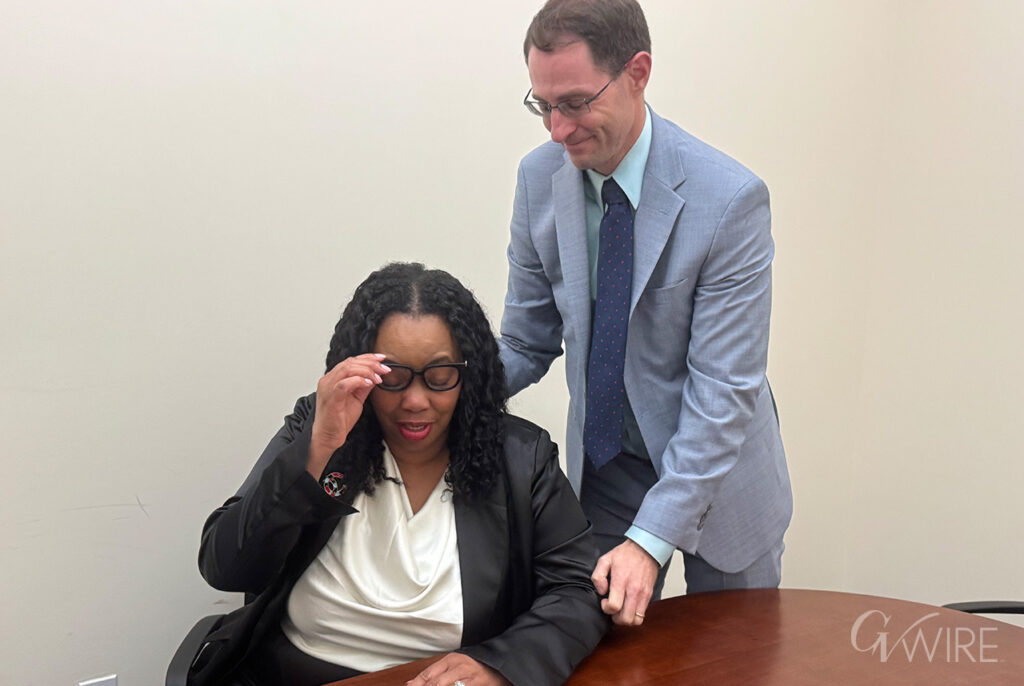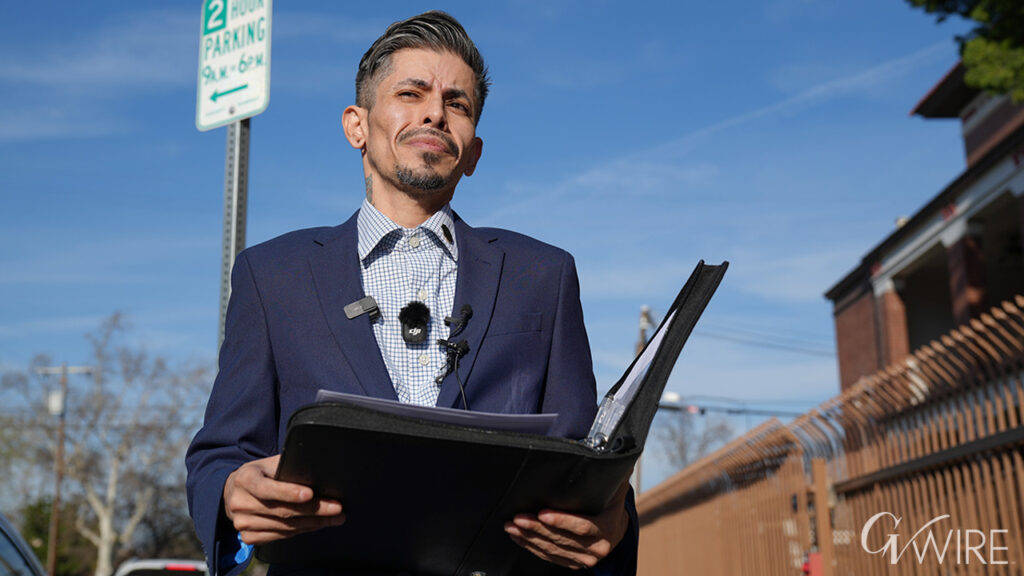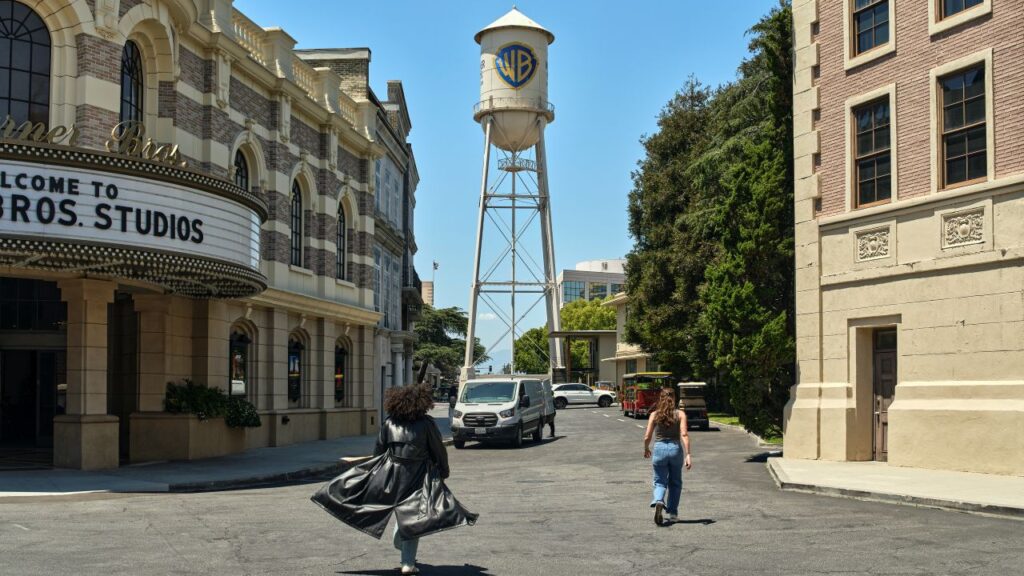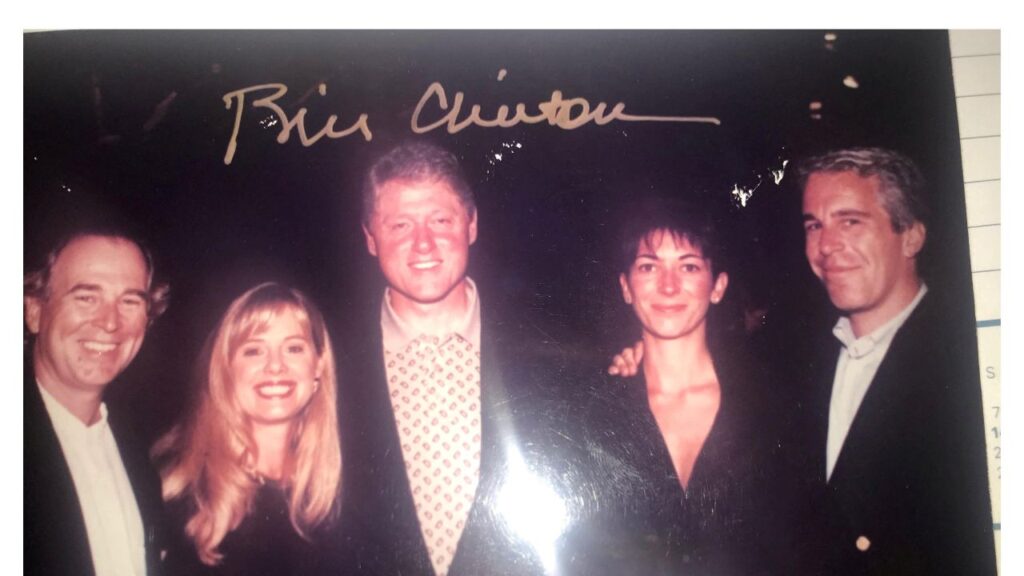Sen. J.D. Vance, R-Ohio, right, points toward Republican presidential candidate former President Donald Trump at a campaign rally, March 16, 2024, in Vandalia, Ohio. Vance is a top contender to be selected as Trump's running mate. (AP File)

- Political candidates' books often lack engaging prose, contrasting Harold Bloom's view of reading as a pleasure.
- In "Hillbilly Elegy," Vance chronicles his rise from a troubled background to Yale Law. Once a Trump critic, he now aligns with Trumpism for political advancement.
- Trump's 1987 bestseller, co-written with Tony Schwartz, showcases his relentless ambition and self-promotion, traits that have persisted throughout his career.
Share
|
Getting your Trinity Audio player ready...
|
“READING well”, wrote Harold Bloom, a well-read literary critic, is “the most healing of pleasures.” Apparently Bloom did not read many books by political candidates. They combine a salesman’s saccharine pushiness and the suspense of watching a second hand rotate, with prose that has been focus-grouped into a turgid blandness from which nothing resembling pleasure can be wrung. Hillary Clinton made “Hard Choices”; Joe Biden had “Promises to Keep”; Mitt Romney offered “No Apology”.
Both men at the top of the Republican ticket, Donald Trump and J.D. Vance, wrote books that made them household names before seeking high office. Their bestsellers are worth rereading to understand how the authors have changed from their original printed personas.
Related Story: Clip Resurfaces of Vance Criticizing Harris for Being ‘Childless,’ ...
Start with “Hillbilly Elegy”, Mr. Vance’s memoir. It chronicles his early life growing up in a fractious family of Appalachian transplants to Ohio defined less by poverty than by an inability to make sensible decisions. His father left when Mr. Vance was a toddler; his mother inhaled heroin (after opiates ran out) and exhaled drama and abuse; before putting the plug in the jug, his grandfather was a violent drunk whom his gun-toting grandmother doused in gasoline and lit after he passed out on the couch (their 11-year-old put out the flames).
This is the loam from which Mr. Vance’s Horatio Alger story blossoms. Out of this chaos, with the encouragement of a cousin, Mr. Vance joins the marines. Although hesitant (“I reminded myself that my country needed me”), he gets through boot camp with encouraging letters from his grandmother: “Hello sweet heart all I can think about is them dicks screaming at you that is my job not them fuckers.”
After four years in the marines, he attends Ohio State University, and then gets into one of America’s most elite institutions, Yale Law School. There he experiences archetypal class discomfort: not knowing which silverware to use or that there was more than one type of white wine. He comes to understand that “There is enormous value in what economists call social capital,” and dedicates himself to earning some, meeting the right sorts of friends and interning on Capitol Hill.
Related Story: JD Vance Makes Solo Debut as GOP Vice Presidential Nominee With Monday Rallies ...
“Hillbilly Elegy” was published in 2016, just as journalists began clamoring to understand the Trumpier parts of America. It became a bestseller, won rave reviews and was made into a film; the New York Times called Mr. Vance “a fiercely astute social critic of the sort we desperately need right now”. Here was someone who seemed to straddle left and right, navigating his way through liberal institutions in a way that urban elites understood and railing against segregating the poor “into little enclaves”, while also stressing his military service and personal responsibility in classic conservative terms. Much as Barack Obama told black men that “We’ve got no time for excuses,” Mr. Vance offered his peers tough love, castigating them for undisciplined spending, eating and work habits.
American liberals today elegise the Mr. Vance of 2016. Now he is the running-mate of a man he once called a “cynical asshole” and feared might become “America’s Hitler”. (He voted for a third-party candidate in 2016.) Politicians often shift with the winds. Mr. Vance seems to genuinely believe that today’s Republican Party, with its religiosity and zeal for protectionism, is better placed to help communities like his than Democrats, and that making peace with Trumpism is the only way to advance in Republican politics. If that sort of realpolitiking seems cynical, it also puts him in good company in Washington.
Mr. Trump’s first book, “Trump: The Art of the Deal”, was also a bestseller. Written with (or perhaps more accurately “by”) Tony Schwartz, a journalist, the book came out in 1987, when Mr. Trump was still largely a creature of New York tabloids without a national profile. Publishers Weekly called it a “boastful, boyishly disarming, thoroughly engaging personal history”, and anyone capable of reading it at a sufficient remove may find it intermittently charming. Mr. Trump, for all his faults, is funny; witty political candidates, including Mr. Obama and Ronald Reagan, tend to win.
Related Story: JD Vance Puts the Con in Conservatism
But the book is a work of salesmanship so relentless as to border on the solipsistic; the effect is like being stuck in a lift with someone who just will not stop talking about himself. Where Mr. Vance humanized his family by showing their flaws, Mr. Trump trots out relative after relative, shellacked in clichéd praise. He tells the story of his late brother, Robert, sharing his blocks with him on the condition that he return them when he was done. But young Donald “created a beautiful building. I liked it so much that I glued the whole thing together. And that was the end of Robert’s blocks.”
As for Mr. Trump himself, his strategy is to “aim very high, and…just keep pushing and pushing and pushing to get what I’m after”. But money, he says piously, “was never a big motivation for me, except as a way to keep score”. Like Mr. Vance, he fancies himself an outsider; moving into a studio apartment in Manhattan in 1971 after being brought up in Queens “was probably more exciting for me” than moving into Trump Tower. And also like Mr. Vance, he finds himself confronting unfamiliar social habits. Watching two associates get drunk leaves him bewildered: “My father would come home every night at seven, have his dinner, read the newspaper, watch the news, and that was that. And I’m as much of a rock as my father.” Stormy Daniels and Melania Trump might disagree.
Mr. Trump’s co-author has since expressed “shame and regret” at helping “a buffoonish real-estate developer” get into the White House. Ten chapters, each about a different deal, form the meat of the book. But reading this as a business book, especially 37 years after it was published and eight years after Mr. Trump won the presidency, is a mistake. Like “Hillbilly Elegy”, it is an ambitious man’s self-introduction to the wider world.
Related Story: Clip Resurfaces of Vance Criticizing Harris for Being ‘Childless,’ ...
Both books also showcase personae left behind. Mr. Trump no longer needs to pretend to be a reliable homebody indifferent to money. Nor is Mr. Vance likely to bring up “all of my reservations about Donald Trump”. Some of Mr. Vance’s law-school friends have taken to deriding him publicly, just as Mr. Trump is light on endorsements from his first-term cabinet members. It can be lonely at the top, but at least they have each other.
Copyright © The Economist Newspaper Limited, 2024
Distributed by The New York Times Licensing Group
RELATED TOPICS:
Categories



















